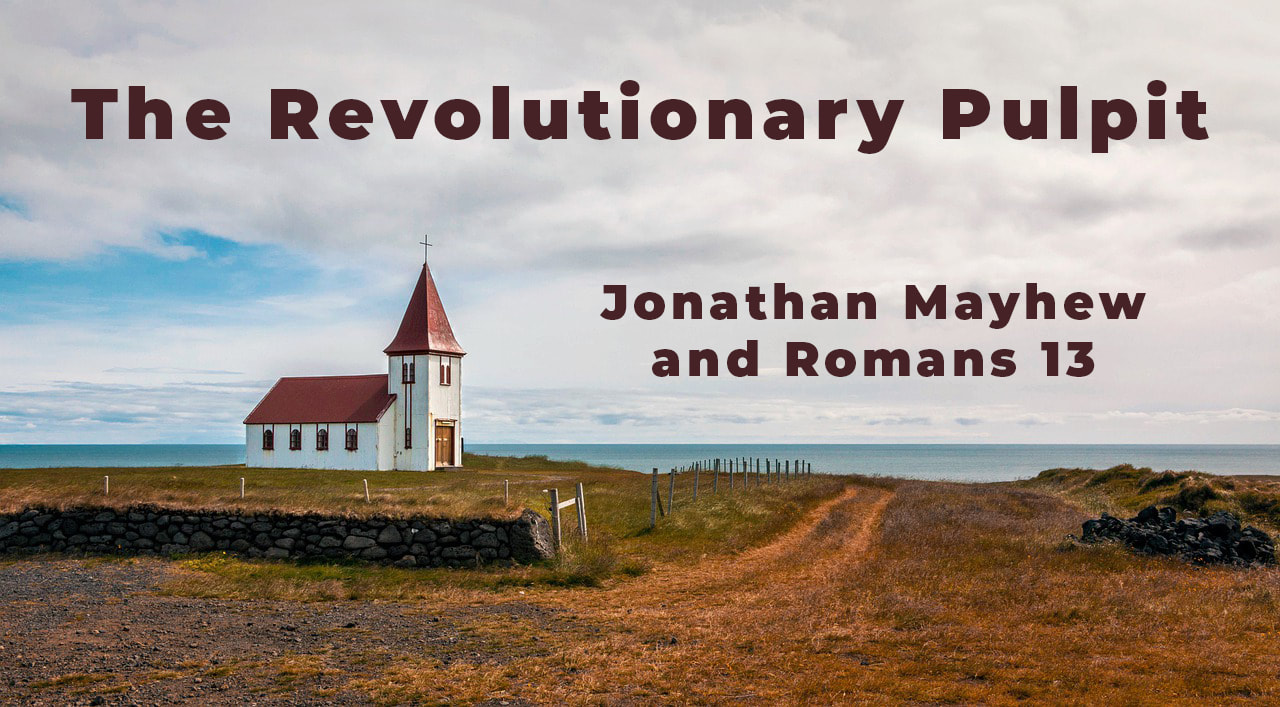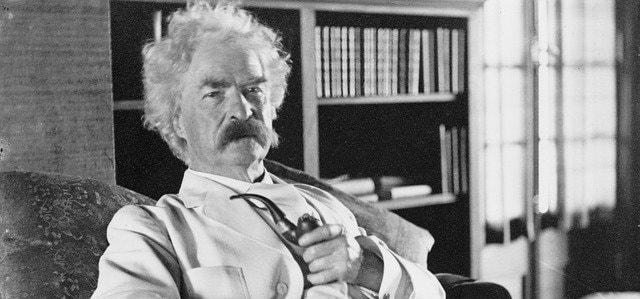|
On January 30, 1750, Jonathan Mayhew stood in the pulpit of Old West Church in Boston and preached what was to become one of the most famous sermons in history. The occasion was the 101st anniversary of the death of King Charles I. The challenge that Mayhew addressed before his congregation was the question of whether rebellion against a tyrant was a violation of the Bible's command in Romans 13 for Christians to submit to political rulers.
1 Comment
When considering Jefferson’s famous letter to the Danbury Baptists, most people only consider how the phrase “wall of separation” sounds to our modern ears. To us, this phrase sounds as if it is describing an impenetrable impasse which stands between our nation’s religious institutions and her political institutions. Consider, for example, the following opinion of Supreme Court Justice Felix Frankfurter in McCollum v. Board of Education:
There is a theory about the history of socialism that has annoyed me for some time now, and that is the theory that a man named James Harrington (whose writings had a powerful influence on America's founders) essentially taught socialism when he used the term "agrarian balance." I have encountered this claim in the writings and lectures of Harvard historian Eric Nelson who wrote "The Hebrew Republic," a book that I highly recommend in spite of this particular error, and in discussions with Jon Rowe of the American Creation Blog. The remainder of this article is a response that I made to one of Jon's reiterations of this claim.
One of the most significant debates separating Christians in America is the debate over how to fight against abortion in our nation. On the one hand, there are the mainstream pro-life leaders who argue that the best way to fight against abortion is to wage a war of attrition by passing incremental laws that make more and more abortions illegal until we finally eliminate all abortions entirely. On the other hand are the personhood and abolitionist leaders who argue that the incremental approach is immoral and that we must strive to pass laws which outlaw all abortions without exception. The two paths are irreconcilable. We must choose one or the other, but how do we know which one is right?
Originally published anonymously in 1905, this poignant essay from Mark Twain is still remarkably applicable to modern America.
Is there such a thing as Christian citizenship? No, but it could be created. The process would be quite simple, and not productive of hardship to any one. It will be conceded that every man's first duty is to God; it will also be conceded, and with strong emphasis, that a Christian's first duty is to God. It then follows, as a matter of course, that it is his duty to carry his Christian code of morals to the polls and vote them. Whenever he shall do that, he will not find himself voting for an unclean man, a dishonest man. Whenever a Christian votes, he votes against God or for Him, and he knows this quite well. God is an issue in every election; He is a candidate in the person of every clean nominee on every ticket; His purity and His approval are there, to be voted for or voted against, and no fealty to party can absolve His servant from his higher and more exacting fealty to Him; He takes precedence of party, duty to Him is above every claim of party. Sir William Blackstone is often praised for laying the groundwork for American jurisprudence with his Commentaries on the Laws of England. Blackstone's Commentaries were one of the most widely read books in the colonies, and his views of the laws of England were often incorporated into the laws of America. One portion of Blackstone's Commentaries that has largely been forgotten by modern legal scholars but which played a significant role in forming the thought of founding fathers like James Wilson was Blackstone's answer to the question of where laws come from. What follows is a condensed version of Blackstone's somewhat loquacious answer to that question.
Yesterday, a lawsuit against Ivey's mask order was dismissed and subsequently appealed. Ivey attempted several interesting twists of the law in her defense, and one such twist that I find particularly disturbing is her claim that the Emergency Management Act gives her complete authority over the "conduct of civilians."
Do you remember being told that we could defeat the virus if we could just put up with some government intrusion for two weeks? "Fifteen Days to Slow the Spread" was the plan that Trump introduced back in March. After we complied with that plan, a new plan was presented. "Thirty (more) Days to Slow the Spread" they said, and we dutifully complied again. That compliance has now extended to more than 120 days, and I say that enough is enough. I am sick and tired of the government overstepping its authority and mandating that I take the steps that they think are the best for my health. I'm done with this. From now on, I'm fighting back, and I know that many of you are too.
I've created a three-pronged attack to fight back against these unlawful orders. I hope that you will join me, and if you have other suggestions, please leave a comment to let others know about it. Here are three ways that you can fight back against the mask: On Friday, June 26, 2020, Dr. Mark Wilson, the health officer of Jefferson County, Alabama, issued an order requiring all residents in the county to wear face masks when in most public settings. There are a lot of good and well-meaning people in favor of this order and a lot of good and well-meaning people who oppose it. Most of the debate between the two groups has focused on whether or not the order is necessary or helpful, but there is a much more important question that should be asked. Before we compare the costs verses the benefits of such an order, we need to ask ourselves if the county health officer has the legal authority to issue this order in the first place.
Much of the debate on the relationship between church and state has centered around the phrases “freedom of religion” and “separation of church and state.” While these phrases have a very important history and should be studied, their applicability to American government must be understood within the confines of the First Amendment. Unfortunately, the debate on this Amendment has largely focused on whether or not its prohibitions are limited to the US Congress. The real key to understanding the First Amendment lies in unlocking the mystery of the phrase “an establishment of religion.”
|
Bill Fortenberry is a Christian philosopher and historian in Birmingham, AL. Bill's work has been cited in several legal journals, and he has appeared as a guest on shows including The Dr. Gina Show, The Michael Hart Show, and Real Science Radio.
Contact Us if you would like to schedule Bill to speak to your church, group, or club. "Give instruction to a wise man, and he will be yet wiser: teach a just man, and he will increase in learning." (Proverbs 9:9)
Search
Topics
All
Archives
June 2024
|












 RSS Feed
RSS Feed